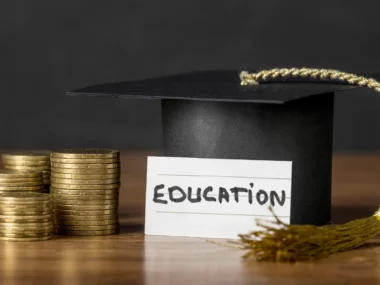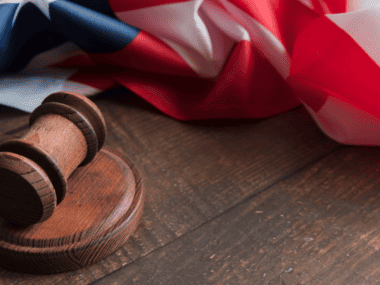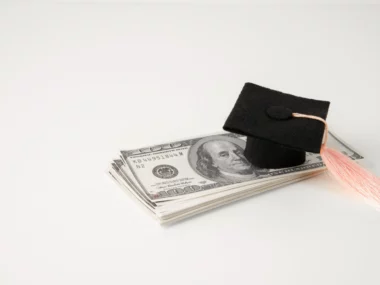Table of Contents
So far, President Joe Biden’s student loan forgiveness plan has received a lot of criticisms, including from the Supreme Court justices who queries his administration’s authority to pardon federal student loans on a large scale.
The case has been in court for a while now, and it is still unclear whether the Supreme Court will let this plan go through or impede it.
On February 28, two cases were presented to the supreme court regarding the President’s loan forgiveness plan – Biden v. Nebraska and U.S. Department of Education v. Brown.
For over forty million Americans who have federal student loans, almost half of them could receive debt forgiveness if the Court decides in favour of the plan.
So far, over 25 million Americans have submitted applications for debt relief, and 16 million applications have been accepted.
The rest are currently on hold until the Court finally makes a decision.
As a borrower holding your breath for what might happen next, here are some things that you should know:
Who qualifies for this loan forgiveness plan?
According to the declaration made by President Biden when he revealed the federal student loan forgiveness plan last August, people earning below $125,000 or households with below $250,000 in earnings will have up to $10,000 in federal student loan debt pardoned.
He revealed that federal student loans for both undergraduate and graduate school will be considered for relief under the forgiveness plan.
Will the forgiveness plan apply to private loans?
So far, there haven’t been any indications that the loan forgiveness plan will apply to private loans. The president’s plan for debt relief only applies to federal student loans, therefore, it is pertinent that students find out the kind of loans that they’re holding, so they will know where they fall.
What kinds of loans are eligible for the forgiveness plan?
Loans that qualify for the forgiveness plan include direct loans, Perkins loans, and Parent PLUS loans. Log in to the Federal Student Aid website to find out the type of loan that you are holding.
Will my student loans be forgiven?
Until the Supreme Court of the US (SCOTUS) makes a decision regarding the approval or declination of the loan forgiveness plan, there is no way to tell whether federal student loans will be forgiven or not.
When will the Supreme Court of The United States (SCOTUS) make a decision?
The supreme court heard arguments on February 28th, and will likely make a decision by the end of June.
What would the forgiveness plan cost the federal government?
According to the Congressional Budget Office, the forgiveness plan would cost the government about $400 billion over the next 30 years. The Budget Office warned that the federal government would be losing a large chunk of revenue which can be used for a lot of beneficial projects. This is part of the arguments against the president’s loan forgiveness plan.
Biden however, stated that the government would make up for the $400 billion cost via other measures such as a particular bill that was signed into law back in August. According to him, this bill is expected to bring in approximately $740 billion over 10 years.
What will happen if the loan forgiveness plan doesn’t get approved?
As it has been established that depending on the Supreme Court’s decision, the loam forgiveness plan may or may not happen, if it happens to get declined, there are other loan forgiveness programs that would still continue, and borrowers can always benefit from them.
Will there be another pause on loan repayment?
After the previous pauses enforced by the past two presidential administrations, it has finally been decided that student loan repayments should begin by the end of August. Interests on these loans would also begin to accumulate.
What steps should I take in preparation for the loan payment restart date?
I’m preparing for August 30, when the pause on student loan repayment would be lifted and borrowers will be required to begin making payments, there are some steps that you can take to prepare yourself financially.
According to Betsy Mayotte, President of the Institute of Student Loan Advisors, borrowers should start putting the money that is intended for repayments into a savings account where it will not only accumulate interest but will also prepare them for the consistent act of making monthly payments.
She advised that borrowers use the loan-simulator tool at StudentAid.gov to determine which payment plan would be their best bet.
What is a Student Loan?
A student loan is the type of loan that a student borrows to settle higher education expenses such as tuition, room and board, transportation, textbooks, and so on.
To prevent a high level of debt repayment in the future, it is smart to only take the amount that you absolutely need when applying for an education loan. When you take a student loan from the government, you are usually not required to pay it back until after getting your degree or certificate. This is known as a federal student loan.
Federal Student Loans
These loans are student loans granted by the US government. It is the prevailing type of student loan due to the multiple advantages that it provides compared to private student loans. This loan usually has low-interest rates and flexible repayment plans. Also, in most cases, a good credit score isn’t usually needed before you can get a federal loan.
There are different types of federal student loans. They include:
- Direct subsidized loans.
- Direct unsubsidized loans.
- Direct PLUS loans.
- Direct consolidation loans.
What is Student Loan Forgiveness?
This is when a lender chooses to forgive a portion or the totality of a person’s student loan. It is an option that is mostly offered by federal loan lenders, not private ones . However, due to some of the eligibility requirements that accompany them, not everyone can get their loan (debt) forgiven.
There are different types of federal student loan forgiveness, each with its own features and requirements.





